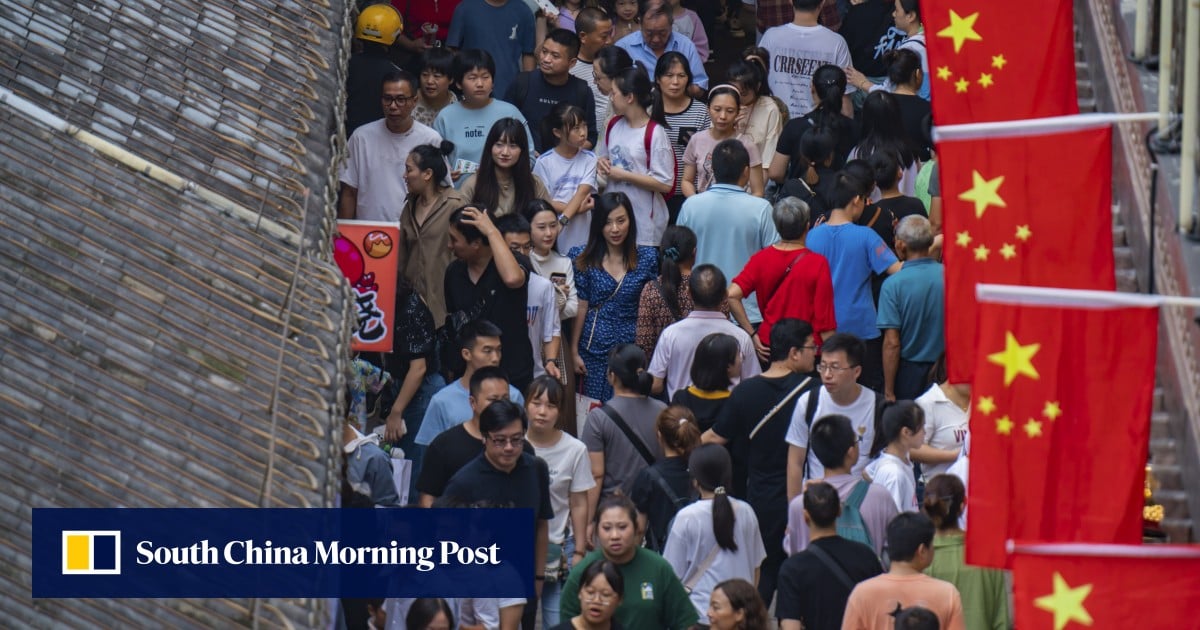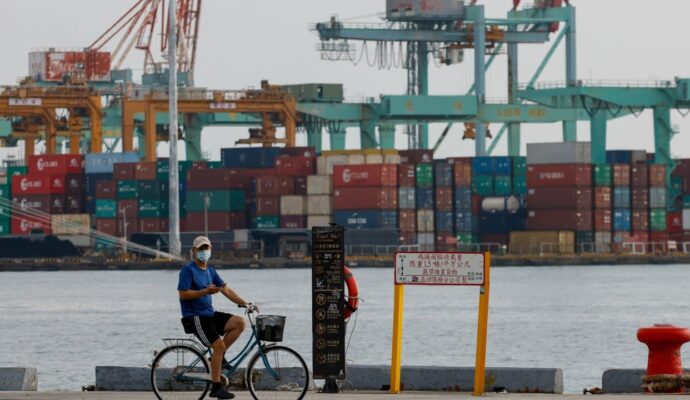
China is expected to achieve Beijing’s economic target for 2023, with a leading governmental think tank predicting 5.1 per cent gross domestic product (GDP) growth in the fourth quarter, but stronger countercyclical policies are still needed to ensure long-term stability.
Economic growth is largely set to be driven by the booming service sector, while new domestic and external challenges are emerging, it said in a report on Friday.
The Chinese economy is currently experiencing a period of favourable tailwinds for the service sector recovery
“The Chinese economy is currently experiencing a period of favourable tailwinds for the service sector recovery, coupled with the headwinds of declining global demand for manufacturing products,” the CASS report said.
China is expected to release its third quarter GDP data next week, as well as key retail sales and industrial production data for September.
It is, though, in the throes of an economic slowdown as demand remains subdued, while the slumping property market, debt-ridden local governments and a bleak export outlook continue to erode confidence in the private sector.
The upbeat estimate from CASS was in contrast to many international investment banks, which remain doubtful about China’s economic prospects as policymakers have refrained from large-scale stimulus to drive up short-term growth.
The Beijing-based think tank said youth unemployment should have peaked in July and started to stabilise after August.
However, momentum for further recovery in the service sector could weaken next year, and improvements in overseas demand may be difficult if the global economic recovery remains sluggish, the report added.
It’s increasingly necessary to proactively implement policies in advance in order to ensure the stable and healthy development of China’s economy next year
“It’s increasingly necessary to proactively implement policies in advance in order to ensure the stable and healthy development of China’s economy next year,” CASS said.
“If countercyclical policies can be timely implemented and take effect at the end of this year to the beginning of next year, it will be conducive to achieving the goals of sustained growth, stable employment and stable expectations over a relatively extended period.”
More international investment banks have begun to revise up their estimates for China’s economic growth in light of signs of improvement in economic indicators in August.
JP Morgan and ANZ raised their 2023 forecasts in September to 5 per cent and 5.1 per cent, respectively.
Weak exports, property crisis weigh as China’s 2023 GDP forecasts cut
Weak exports, property crisis weigh as China’s 2023 GDP forecasts cut
Hang Seng Bank also said last week that their 2023 projection remained at 5.3 per cent, while UBS also said last week that China’s third quarter GDP sequential growth likely stabilised.
However, continued weakness of property sales and investments are expected, despite stable industrial production growth and a rebound in retail sales, said Zhang Ning, senior China economist at UBS Investment Research, last week.
Last week, the World Bank kept its 2023 economic growth estimate unchanged at 5.1 per cent, although it downgraded its forecast for next year by 0.4 percentage points to 4.4 per cent.


